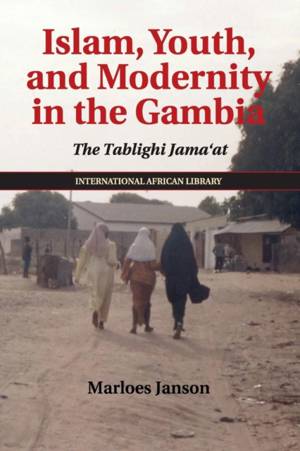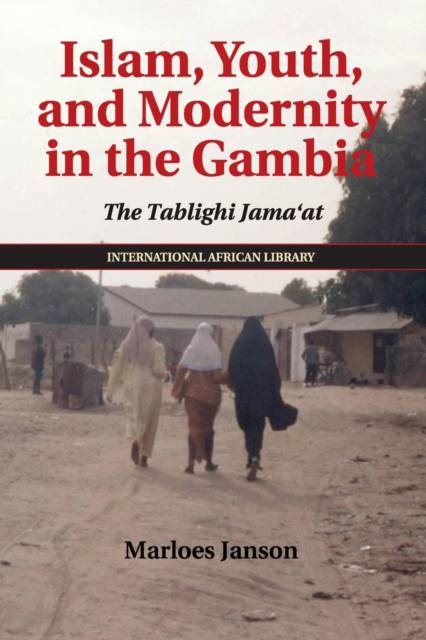
- Afhalen na 1 uur in een winkel met voorraad
- Gratis thuislevering in België vanaf € 30
- Ruim aanbod met 7 miljoen producten
- Afhalen na 1 uur in een winkel met voorraad
- Gratis thuislevering in België vanaf € 30
- Ruim aanbod met 7 miljoen producten
Zoeken
€ 60,95
+ 121 punten
Uitvoering
Omschrijving
This monograph deals with the sweeping emergence of the Tablighi Jama'at - a transnational Islamic missionary movement that has its origins in the reformist tradition that emerged in India in the mid-nineteenth century - in the Gambia in the past decade. It explores how a movement that originated in South Asia could appeal to the local Muslim population - youth and women in particular - in a West African setting. By recording the biographical narratives of five Gambian Tablighis, the book provides an understanding of the ambiguities and contradictions young people are confronted with in their (re)negotiation of Muslim identity. Together these narratives form a picture of how Gambian youth go about their lives within the framework of neo-liberal reforms and renegotiated parameters informed by the Tablighi model of how to be a "true" Muslim, which is interpreted as a believer who is able to reconcile his or her faith with a modern lifestyle.
Specificaties
Betrokkenen
- Auteur(s):
- Uitgeverij:
Inhoud
- Aantal bladzijden:
- 325
- Taal:
- Engels
- Reeks:
- Reeksnummer:
- nr. 45
Eigenschappen
- Productcode (EAN):
- 9781108403863
- Verschijningsdatum:
- 1/06/2017
- Uitvoering:
- Paperback
- Formaat:
- Trade paperback (VS)
- Afmetingen:
- 152 mm x 229 mm
- Gewicht:
- 480 g

Alleen bij Standaard Boekhandel
+ 121 punten op je klantenkaart van Standaard Boekhandel
Beoordelingen
We publiceren alleen reviews die voldoen aan de voorwaarden voor reviews. Bekijk onze voorwaarden voor reviews.











